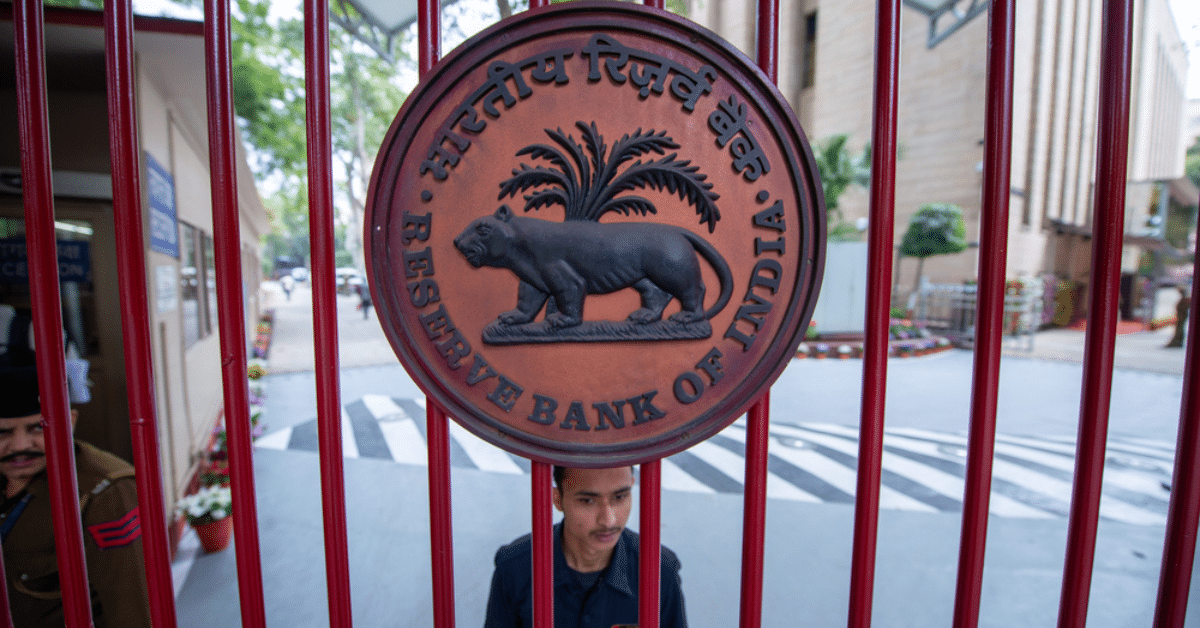SUMMARY
The central bank has reportedly increased its scrutiny of peer-to-peer (P2P) lending apps
RBI’s whip comes after many players in the space flouted the norms it had outlined in 2017
It observed breaches of guidelines, like deficiencies in the Know Your Customer (KYC) process
Days after the Reserve Bank of India (RBI) initiated a crackdown on card networks, it has now reportedly heightened its scrutiny of peer-to-peer (P2P) lending platforms after it was flagged that they have breached norms, including KYC guidelines.
As per Moneycontrol’s report, the central bank recently dispatched emails to entities in the space, which hosts players like CRED, Jupiter, BharatPe, Lendingkart and LiquiLoans, among others, requesting details such as onboarding procedures, customer profiles, agreements with lenders and IT infrastructure.
These requests, sent to platforms that have not fully complied with regulatory directives or provided satisfactory information, aim to address concerns regarding risk mitigation and compliance.
Regulatory engagement with licensed platforms has included email communications and onsite visits to offices in New Delhi and Mumbai since September.
The report quoted a unanimous founder of a P2P startup saying, “Everyone was given a 24-hour deadline to respond.”
The main issue that the bank is looking to address with this back and forth with P2P players is ascertaining the nature of the control of the transaction between the user and the platform.
Platforms are required to give all “control points” to lenders to share a structure of loan according to their comfort. These control points include details on the borrower’s identity, loan amount and tenure, and credit score, which must be given by the platform, followed by a unique agreement for each borrower. The bank observed that this isn’t the case for many lending platforms.
The central bank also does not want an NBFC-P2P entity to lease out its licence to partner entities for business
This adds another chapter in the bank’s close watch of fintech platforms. However, RBI’s close monitoring of P2P platforms has had multiple developments over the years. P2P startups are regulated as non-banking financial companies (NBFC-P2Ps) and therefore are required to regularly share updates with the RBI.
Last year between March and April, it sent questions about partnership models with consumer-facing apps, the flow of funds and risk-sharing among partners, among other aspects, to entities in the space.
“We had been in touch with the RBI since last year. They have been seeking details on customer onboarding, what are the lender agreements, partnerships with other apps, and how transactions are structured. Some of the norms are misinterpreted and incorrectly followed, which we are changing,” a founder reportedly said.
In September, the central banking institution’s officials paid visits to Delhi and Mumbai offices of the entities in question post initial communications with mail.
RBI’s deputy governor M Rajeshwar Rao pointed out that some business practices adopted by P2P companies lie outside of the bank’s guidelines. “NBFC-P2Ps have been observed to underplay the risks through various means such as promising high/ assured returns, structuring the transactions, providing anytime fund recall facilities, etc. Let me make it clear that any breach of licensing conditions and regulatory guidelines is non-acceptable,” he had said during the NBFC Summit organised by Confederation of Indian Industry (CII) earlier this month.
As per consulting firm IndustryARC, the P2P lending market size is forecast to reach $10.5 billion by 2026, at a CAGR of 21.6 percent from 2021.
Last week, RBI directed card networks Visa and Mastercard to halt commercial card-based business payments. The back-to-back directives from the RBI add to a long list of troubles for the fintech ecosystem which has been grappling with the aftermath of this regulatory crackdown.
The recent spate of orders from the central bank has impacted operations at names such Paytm Payments Bank, with reports making the rounds that both EnKash and Paymate have also been hit by RBI’s order to Visa and Mastercard on Wednesday.
Disclaimer
We strive to uphold the highest ethical standards in all of our reporting and coverage. We StartupNews.fyi want to be transparent with our readers about any potential conflicts of interest that may arise in our work. It’s possible that some of the investors we feature may have connections to other businesses, including competitors or companies we write about. However, we want to assure our readers that this will not have any impact on the integrity or impartiality of our reporting. We are committed to delivering accurate, unbiased news and information to our audience, and we will continue to uphold our ethics and principles in all of our work. Thank you for your trust and support.



![[CITYPNG.COM]White Google Play PlayStore Logo – 1500×1500](https://startupnews.fyi/wp-content/uploads/2025/08/CITYPNG.COMWhite-Google-Play-PlayStore-Logo-1500x1500-1-630x630.png)